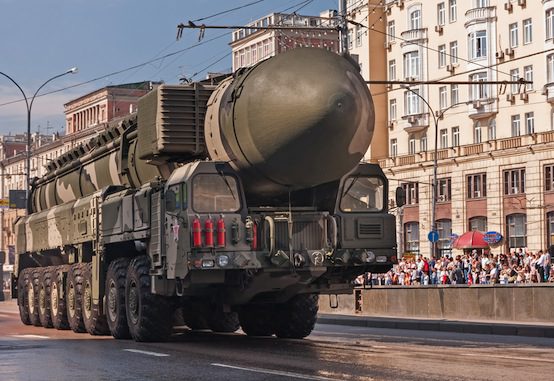The Iran Hawks’ Extraneous Objections to a Nuclear Deal

Dan Drezner takes a stab at defending Iran hawks’ opposition to the framework agreement:
So yes, from a hawkish perspective, you could argue that there are worse things than Iran trying to develop a nuclear deterrent under heavy sanctions. There’s an Iran flush with cash, abstaining from a nuclear weapon but aggressively trying to advance its aims in the Middle East.
I suppose Iran hawks could start to argue that now, but in order to take them seriously we would have to forget everything they have said about an Iranian bomb for the last two decades. Iran hawks have spent years ginning up absurd theories that the Iranian government is dominated by an apocalyptic cult that wants to usher in the end-times. They’re the ones that have sought to make support for containment of a nuclear-armed Iran politically radioactive, and they have attacked any politician that even entertained the possibility that containment might be a tolerable alternative to “prevention.” If presidential candidates doubted that an Iranian bomb was anything less than an intolerable threat that absolutely had to be prevented, Iran hawks cited this as proof that said candidate was dangerously naive and had to be defeated. When Obama has tried to put the scale of an Iranian nuclear threat in perspective by correctly observing that the USSR was a vastly greater threat to the U.S. than Iran could ever be, Iran hawks ridiculed him for not “getting” the threat that an Iranian bomb would pose. Iran hawks have based almost all their arguments against any deal with Iran on the assumption that a deal “paves” the way for Iran to get nuclear weapons, as Netanyahu likes to put it, and they insist that they are the only ones that really understand how to stop Iran from getting these weapons. They’re completely wrong about all of that, but what else is new?
Now that all of those arguments have failed–and were never any good to begin with–they want to tell us about all the many things that the deal doesn’t include. Having spent many years insisting that preventing an Iranian bomb was a top priority, Iran hawks find that they don’t like the trade-offs that were always going to be required to make that happen. Then again, they seem to think that the U.S. should never make any trade-offs or compromises when dealing with Iran. They expect Iran to give up everything at no cost to us, and they seem to think that the only thing that is keeping that capitulation from happening is a lack of presidential determination and willpower. Just apply more pressure, and the other side will give in. That’s their idea of “negotiating.”
Not only do these extraneous objections about Iranian missiles or support for regional proxies miss the point, but in raising them Iran hawks are mostly just setting absurdly high expectations for what a deal ought to include so that they can rubbish any deal that is actually reached. “Well, sure, this keeps Iran from being able to build a nuclear weapon for a long time, but it doesn’t solve all other problems in the region, so it must be a lousy deal.” This is a way to reject a deal that secures what the Iran hawks have always claimed to want while still maintaining the pretense that they are “tough” on foreign policy. As usual, they aren’t tough in any meaningful sense. They’re just irresponsible and reckless.
For the sake of argument, let’s say that keeping Iran under “heavy sanctions” was preferable. How would these “heavy sanctions” be kept in place when most other nations wouldn’t continue to support them? The alternative to making a deal that includes sanctions relief isn’t a resumption of the status quo before the Joint Plan of Action (JPOA) and a continuation of “heavy sanctions” forever. It is the eventual loosening and then collapse of most international sanctions on Iran. If Iran hawks now claim to be alarmed by the harm Iran could do with increased resources, that makes their opposition to the nuclear deal framework even more ridiculous than it already was. Sooner or later, most of Iran’s trading partners are going to get back to doing business with them. Before that happens, the U.S. and the other members of the P5+1 can extract concessions from Iran on the nuclear issue as they have been trying to do, or they could fail to do that and still face an Iran benefiting from the resumption of trade a few years from now. The main difference is that Iran would still have a mostly unconstrained nuclear program in that scenario, and it would have the additional resources that it could use to wield influence around the region. Iran hawks should think this is the worst outcome possible, but it is the one they seem eager to bring about. Refusing to resolve one issue because there are unpalatable trade-offs or because it doesn’t magically solve all other problems is a mindless approach to foreign policy, so it is not surprising that it is the one that Iran hawks tend to favor.
Comments